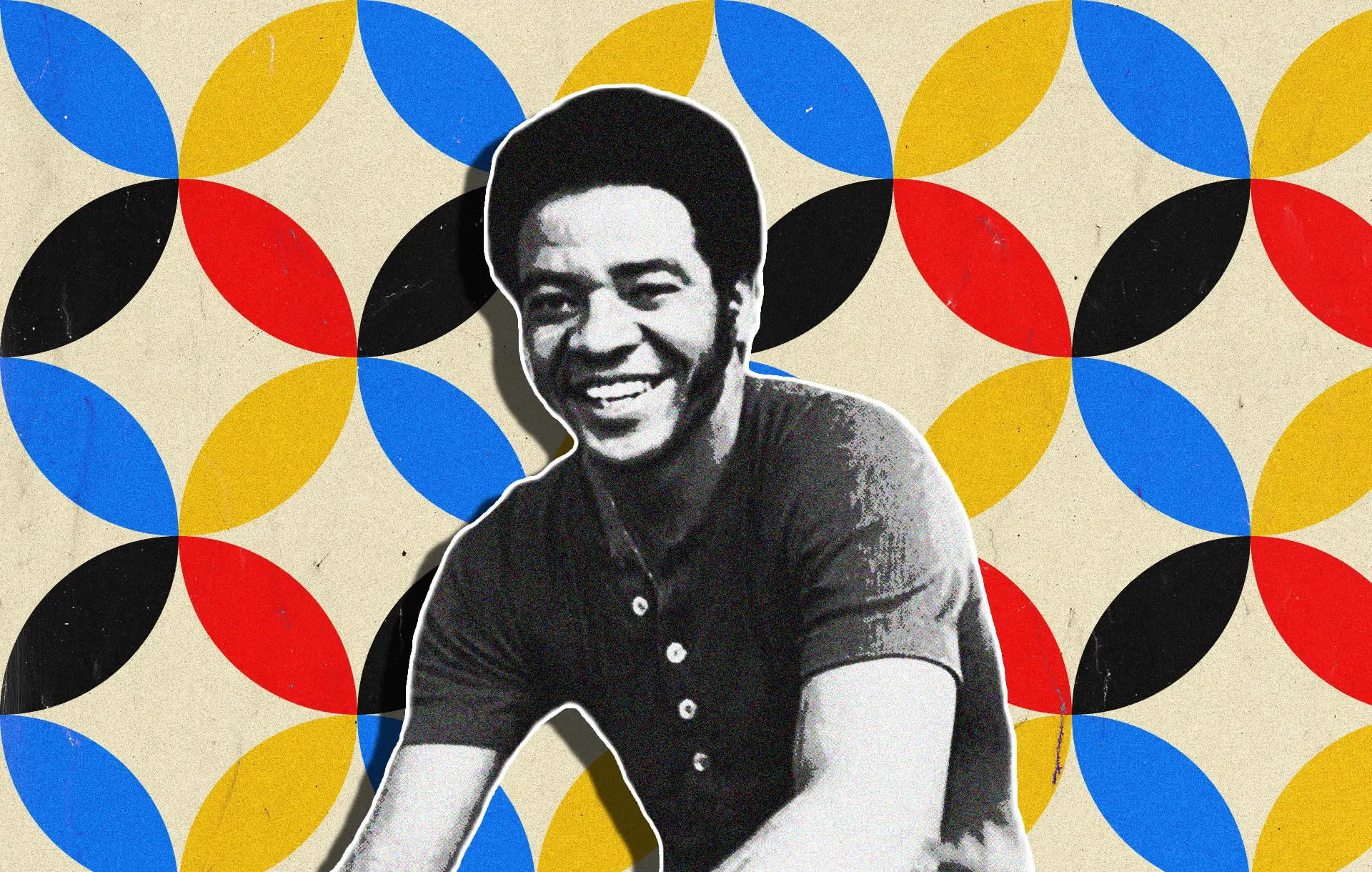When Bill Withers died at the beginning of April 2020 at the age of 81, even many of his biggest fans were unaware that he was still alive up to that moment. The reason was quite simple. The man who wrote and sang some of soul music’s biggest hits decided to quit making music at one point in 1985.
Rare live appearances that came up later on just confirmed the quality of his talent, with “Lean On Me” ― one of his biggest hits ― re-emerged at the time of his death “as an anthem of hope and solidarity in the time of COVID-19.”
When the same magazine wrote a big feature on the artist back in 2015, Questlove had this to say about the three-time Grammy winner: “He’s the last African-American Everyman. Jordan’s vertical jump has to be higher than everyone. Michael Jackson has to defy gravity. On the other side of the coin, we’re often viewed as primitive animals. We rarely land in the middle. Bill Withers is the closest thing black people have to a Bruce Springsteen.” And it is Withers’ extraordinary story that tells it why.
From Stutter, ‘Across the Universe’ to Stardom
Being born in Slab Fork, West Virginia (July 4th, 1938) in the final years of the Great Depression, it didn’t spell out to be a great sign of possible stardom. Even less when you consider the fact that you had a speech impediment as a kid. Withers did.
On one hand, you begin your life living with incredible racism in the South of that day. “One of the first things I learned, when I was around four,” he told Rolling Stone, “was that if you make a mistake and go into a white women’s bathroom, they’re going to kill your father.” The stutter, just made things worse – “when you stutter, people tend to disregard you.”
Summer night in Harlem
“Harlem” – 1971
Man it’s a really hot
Well it’s too hot to sleep
And I’m too cold to heat
I don’t care if I die or not
Winter night in Harlem
Oh, radiator won’t get hot
Well the mean old landlord, a-he don’t care
If I freeze to death or not
Since job opportunities for Withers were practically non-existent, he joined the Navy after high school and things didn’t fare much better for him when he moved to California after quitting military service. He had to get a job as a milkman in Santa Clara, California.
Withers then got a job in an aircraft parts factory. Actually, as he told it himself in a TV interview, he was installing cameras in Boeing 747 toilets. “So,” he continued in his inimitable style, “if you’ve ever been to a toilet on a 747, I know you very well.”
As he told interviewers, later on, music didn’t play much of a role in his life. Probably didn’t have a chance to either. One night, during his aircraft factory life he decided to visit a nightclub in Oakland where Lou Rawls was booked to perform. “He was late, and the manager was pacing back and forth,” Withers said. “I remember him saying, ‘I’m paying this guy $2,000 a week, and he can’t show up on time.’ I was making $3 an hour, looking for friendly women, but nobody found me interesting. Then Rawls walked in, and all these women are talking to him.”
Then and there he made up his mind. Withers went to the first pawnshop and bought a cheap guitar which he used to learn how to play from scratch. Between factory shifts, he started writing songs, and later he started sending demo tapes around to record labels, with Sussex Records (a smaller L.A. record label) taking a bite.
‘Just As I Am’ and No Other Way
It seems the executives at Sussex had the right feeling and they took more than a simple bite. They brought in Booker T. Jones as the producer, his MG’s bassist Donald “Duck” Dunn, and Stephen Stills on guitar to record an album.
That session brought about Withers’ first album Just As I Am (1971), that to the surprise of all, including Withers himself, became a big hit. A big reason for that success probably lay with Withers’ biggest hit: “Ain’t No Sunshine.” It was one of the first songs he wrote, as he said, after watching the 1962 Jack Lemmon-Lee Remick movie Days of Wine and Roses on television. That song though, paved the way for some really substantial early Withers’ songs like “Harlem” and “Grandma’s Hands.”
The second album, Still Bill (1972) followed that success path, riding the wave of another big hit single that still rings today: “Lean On Me.”
As Withers explained, he wrote the song shortly after learning how to play the piano and thought it was a bit too simple. Probably the reason Sussex thought it would be a hit, and they were right. “I try not to be too analytical about it because it wouldn’t be magic anymore,” Withers told Rolling Stone in 2015. “I didn’t change fingers; I just went one, two, three, four, up and down the piano. A lot of children come up and say, ‘That’s the first song I learned to play,’ and I’m thinking, ‘Don’t congratulate yourself; that’s pretty easy.’ You could make a tool and play that.”
Yet, all the success didn’t seem to sit well with Withers. He went through all of it without a manager (“Early on, I had a manager for a couple of months, and it felt like getting a gasoline enema,” he said. “Nobody had my interest at heart. I felt like a pawn. I like being my own man.”) and his marriage to then TV star Denise Nicholas was all over the tabloids at the time. To add to all that, he hated touring.
Changing Labels, Departing the Scene
By the mid-’70s, Withers’ label Sussex was having problems, exactly at the time when he was working on a new album. The label wasn’t able to pay Withers for his efforts, so in a second, he decided to erase the whole album. “I was socialized in the military,” he said. “When some guy is smushing my face down, it doesn’t go down well. Since I was self-contained and had no manager, my solution was to erase the album. I don’t even know which one it was, but it’s gone” (Rolling Stone).
His move to the recording giant Columbia Records didn’t start well. “I met my A&R guy, and the first thing he said to me was, ‘I don’t like your music or any black music, period,’” Withers said. “I am proud of myself because I did not hit him.”
Even though Withers came up with two more big hits for the label, “Lovely Day” and “Just The Two of Us” (quite possibly the song that started the whole smooth jazz genre), the relations between him and Columbia kept on souring. At some point, the label executives insisted with him to cover Elvis Presley’s “In The Ghetto.” Withers refused, and as he told interviewers, later on, Columbia didn’t even let him enter a studio from 1978 to 1985.
When he was finally allowed to record Watching You Watching Me in 1985, that actually spelled the end of Withers’ active music career. Speaking about that experience he said the following:
“They made me record that album at some guy’s home studio. This stark-naked five-year-old girl was running around the house, and they said to her, ‘We’re busy. Go play with Bill.’ Now, I’m this big black guy and they’re sending a little naked white girl over to play with me! I said, ‘I gotta get out of here. I can’t take this shit!’”
It took Withers almost twenty years to appear on stage again. He performed live in 2004 for the 40th birthday party of Detroit Pistons owner Tom Gores. “His wife kept calling,” he said. “She said it was only for 150 people, but I kept refusing. Then the [money] got so high that my nose started to bleed” (Rolling Stone). His last appearance was in 2015 when he was inducted into the Rock and Roll Hall of Fame, representing, as he put it, “the old junk category.”
Withers didn’t seem to be bothered much by his active absence from the music scene. His songs were not only played regularly but were covered so many times that he’d probably lost count. As NPR, notes, Hip-Hop has also mined Withers’ catalog, notably Kanye West, whose “Roses” is a riff on “Rosie,” a song that was left off of Withers’ Menagerie, and Dr. Dre, who sampled “Grandma’s Hands” for Blackstreet’s “No Diggity.”
Withers was out of the spotlight for so many years that some people thought he passed away even before he actually did. He was aware of that fact and was able to joke about it. “Sometimes I wake up and I wonder myself,” he spoke while he was still around. “A very famous minister actually called me to find out whether I was dead or not. I said to him, ‘Let me check.’”
While there are things to check about Withers as a person and about his life, one thing needs no checking. He was an artist of incredible talent who gained success surmounting great hurdles and who decided the whole thing was not worth it and quit. His legacy remains living on, anyway.




